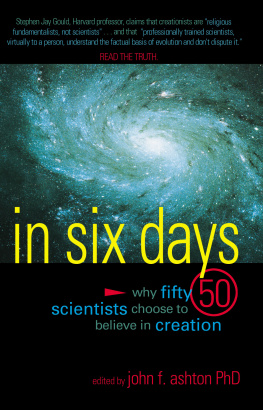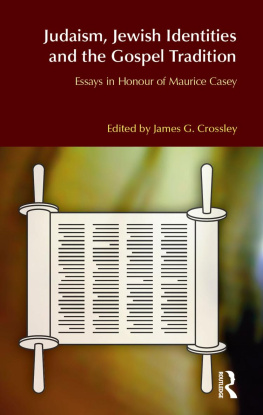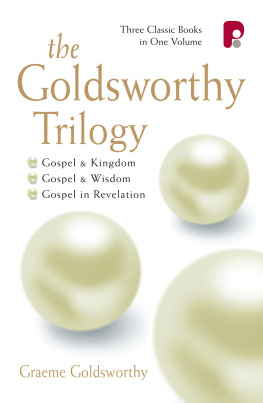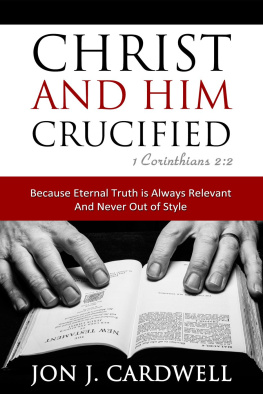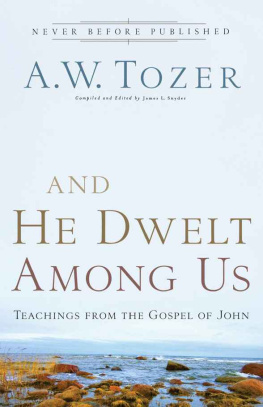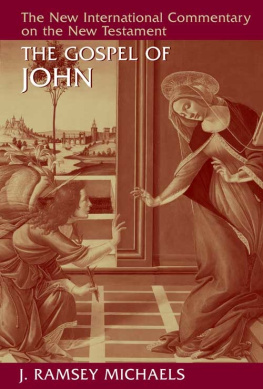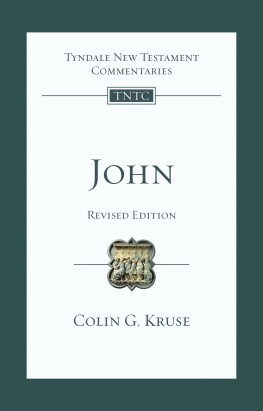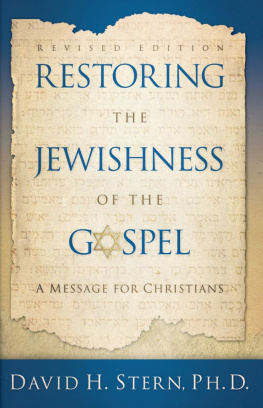The Gospel of John and Christian Origins
John Ashton
Fortress Press
Minneapolis
THE GOSPEL OF JOHN AND CHRISTIAN ORIGINS
Copyright 2014 Fortress Press. All rights reserved. Except for brief quotations in critical articles or reviews, no part of this book may be reproduced in any manner without prior written permission from the publisher. Visit http://www.augsburgfortress.org/copyrights/ or write to Permissions, Augsburg Fortress, Box 1209, Minneapolis, MN 55440.
Scripture quotations, apart from the authors own translations, are from the Revised Standard Version Bible, copyright 1973 by the Division of Christian Education of the National Council of the Churches of Christ in the USA. Used by permission. All rights reserved.
Cover image Thinkstock
Cover design: Tory Herman
Library of Congress Cataloging-in-Publication Data
Ashton, John, 1931
The gospel of John and Christian origins / John Ashton.
pages cm
Includes bibliographical references.
ISBN 978-1-4514-7214-1 (pbk. : alk. paper) ISBN 978-1-4514-7982-9 (ebook)
1. Bible. JohnCriticism, interpretation, etc. 2. Christianity and other religionsJudaism. 3. JudaismRelationsChristianity, 4. ChristianityOrigin. I. Title.
BS2615.52.A83 2014
226.506dc23
2013034858
The paper used in this publication meets the minimum requirements of American National Standard for Information Sciences Permanence of Paper for Printed Library Materials, ANSI Z329.48-1984.
Manufactured in the U.S.A.
This book was produced using PressBooks.com.
The enquiry of truth, which is the lovemaking or wooing of it; the knowledge of truth, which is the presence of it; and the belief in truth, which is the enjoying of itis the sovereign good of human nature.
Francis Bacon
Contents
First I want to thank Philip Esler for inviting me to St Marys University College, Strawberry Hill, where he had recently taken up the post of Principal, for the purpose of giving the short series of lectures on which this book is based. The invitation was especially welcome because an offer to my own university, Oxford, to give the lectures there had recently been turned down.
A similar offer to Judith Lieu in Cambridge met with a similar, though very gracious answer: the lecture syllabus was already full. So I was especially grateful for Philips immediate response to the expression of my disappointment, while I was entertaining him to breakfast along with his wife, Patricia, one bright summer morning in my Oxford flat: Come and give your lectures at St Marys, John. Whats more, Ill pay you.
Like many storytellers, I have begun at the end. The true beginning was an offer by my very good friends Catrin Williams and Christopher Rowland to organize a colloquium on my work at the University of Bangor. A month before this took place, in July 2010, I had returned to Oxford after a long stay in France, convinced (having recently completed a second edition of my book Understanding the Fourth Gospel) that I had nothing left to say on the Gospel of John. But of course I was obliged to introduce the Bangor colloquium, and to write up my piece afterwards for the book that Catrin was editing. A spin-off from this work was an article on the Son of Man, published the following year in New Testament Studies. Meanwhile I had been asked to contribute something to a book celebrating the fiftieth anniversary of C. H. Dodds Historical Tradition in the Fourth Gospel. What with one thing and another I felt I had accumulated enough material for a short series of lectures, and possibly, after that, for another book. Hence my offer to Oxford, and hence too my gratitude at Philip Eslers immediate response to my story of its rejection.
I must now name the five friends who have generously and unstintingly given me advice during the composition of this book. I have already mentioned Catrin Williams and Christopher Rowland, but it is to Chris especially that I owe many stimulating suggestions about how my work could be improved. Another old friend and colleague who has given me help is Robert Morgan, and I remember in particular one summer day last year in his Sandford garden, when we were hunting through a decidedly prolix book by F. C. Baur, the great nineteenth-century exegete and theologian whose work he knows so much better than I. The oldest friend of all, Robert Butterworth, has reviewed my work for many years with a clarity of perception and a refusal of fudge that only a true friend could supply. Lastly a newer and much younger friend whose opinion I have come to value, Ben Reynolds, whom I see somehow as picking up the baton of Johannine studies and carrying it for a long time to come.
To all these, and to many other friends who have helped me in different ways, I am very very grateful. And in adding a word of thanks to Fortress Press I want to record my delight and surprise when a submission made by email when the book was almost finished was greeted an hour later with a message from the editor, Neil Elliott, that included the words, I know your work well.
April, 2013
One day in early August 1942, when a German nun called Sister Benedicta was at prayer in the chapel of the Carmelite convent in the Dutch town of Echt, members of the German SS presented themselves at the convent door. They told the prioress to inform Sister Benedicta, whose original name was Edith Stein, that she had ten minutes to pack all that she needed for a journey to Germany. From Germany she was transported to Auschwitz, in Poland, where she was murdered. She was fifty years old. Ten years earlier she had entered the Carmelite order. Edith Stein was Jewish; but one day in 1921, at the age of thirty, she had picked up and read from cover to cover a copy of the autobiography of St. Teresa of Avila. She had been interested in Christianity for some time, but for her this book was the last step in her long search for truth. On finishing it she said to herself, Das ist die Wahrheit!That is the truth. Looking back, she realized that this was the moment both of her decision to become a Catholic and of her vocation to the Carmelite Order. She went to tell her mother, a fervent, practicing Jew, who was horrified, and wept. Edith was very close to her mother, but she had never seen her in tears before. Shortly afterwards, on Yom Kippur, the two women went together to the synagogue. When the rabbi intoned the words, Hre O Israel, Dein Gott ist ein Einziger (Hear, O Israel, your God is One), Ediths mother leaned over and whispered to her daughter, Hrst Du? Dein Gott ist ein EinzigerDo you hear? Your God is One, and only One.
Here is the boundary line: one God. Christianity also proclaims one God, but its two central doctrines, Incarnation and Trinity, sharply differentiate it from the other religions of the book, Judaism and Islam. These two doctrines are found in the Gospel of John, the first spelled out explicitly on its first page, the second clearly adumbrated in the part of the Gospel we call the Farewell Discourse (chs. 1416). They situate it poles apart from Judaism, further away than any other writing in the New Testament, and consequently make it the hardest of all to explain. Even considered in isolation, with no consideration of its relation to Judaism, it is an astonishing, bewildering, mysterious work. So we should not be surprised that the great German scholar Adolf Harnack declared in 1886 that the origin of the Johannine writings is, from the standpoint of a history of literature and dogma, the most extraordinary enigma which the early history of Christianity presents. What Harnack actually wrote was das wundervollste Rtsel, the most marvelous riddle, or a puzzle full of mysteries. The Gospel of John is indeed a puzzle full of mysteries. How are we to explain it?


